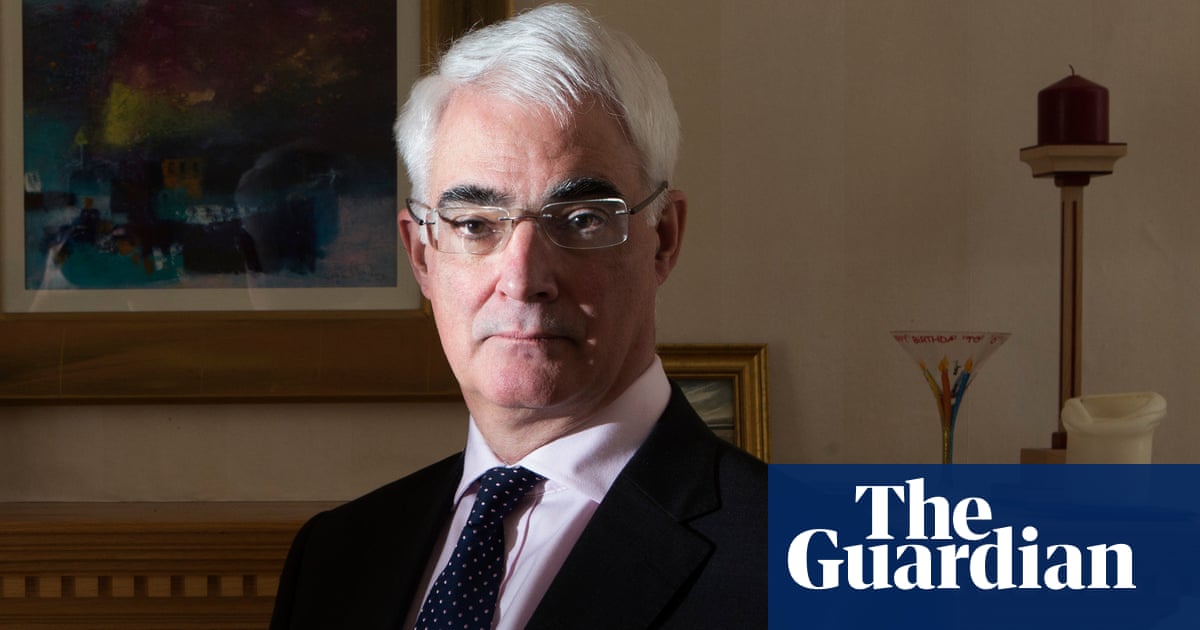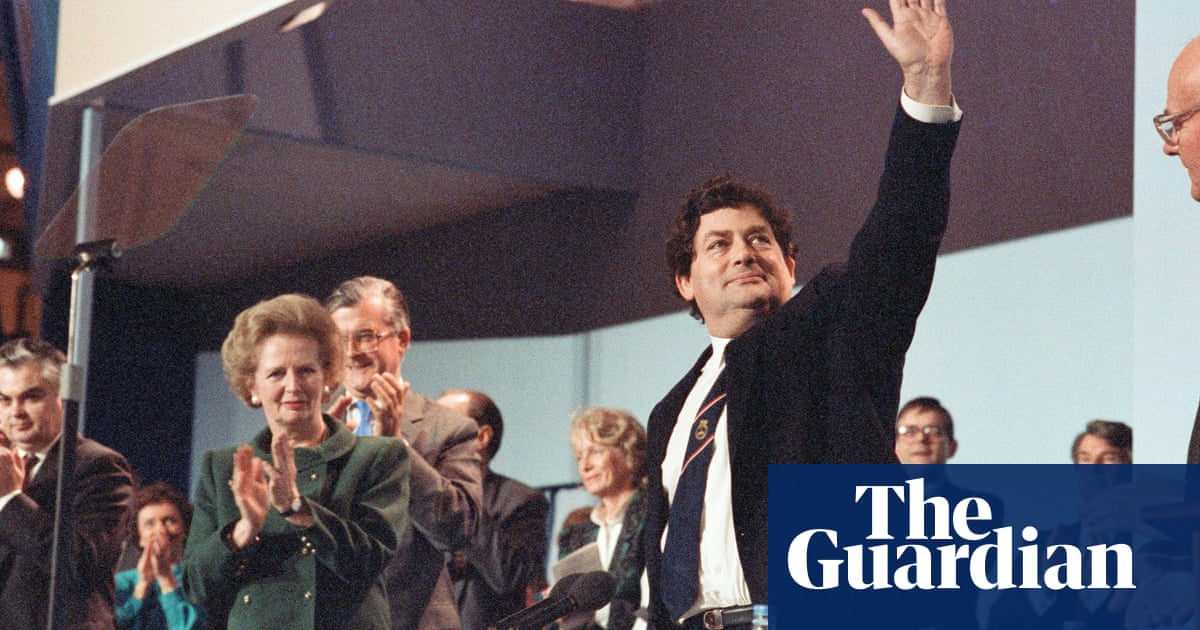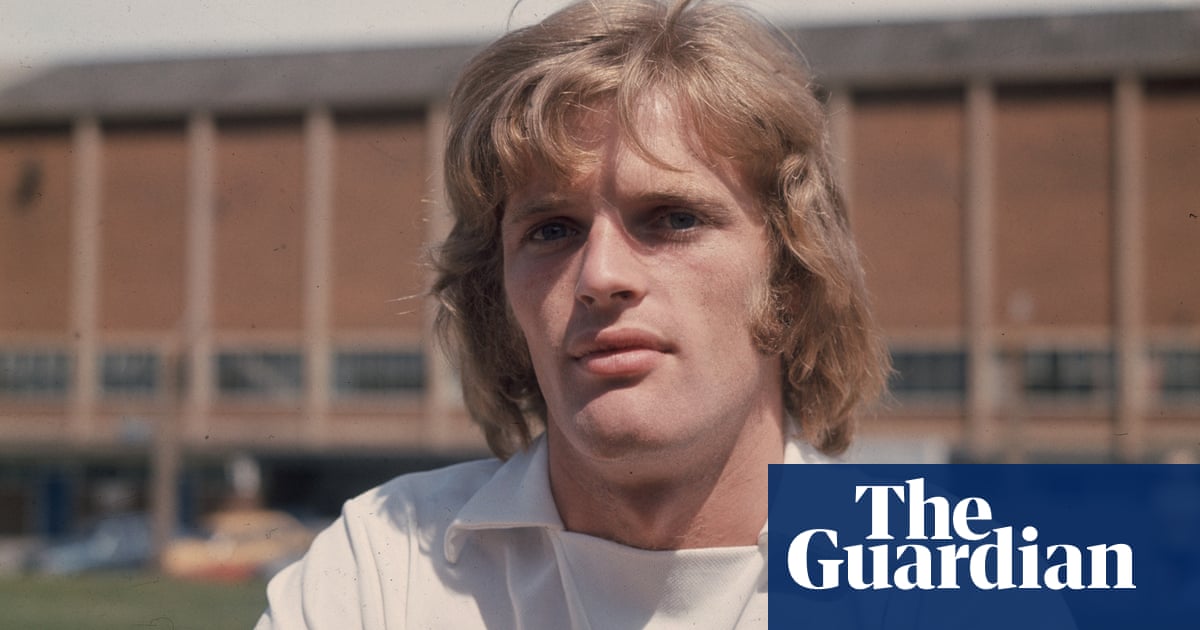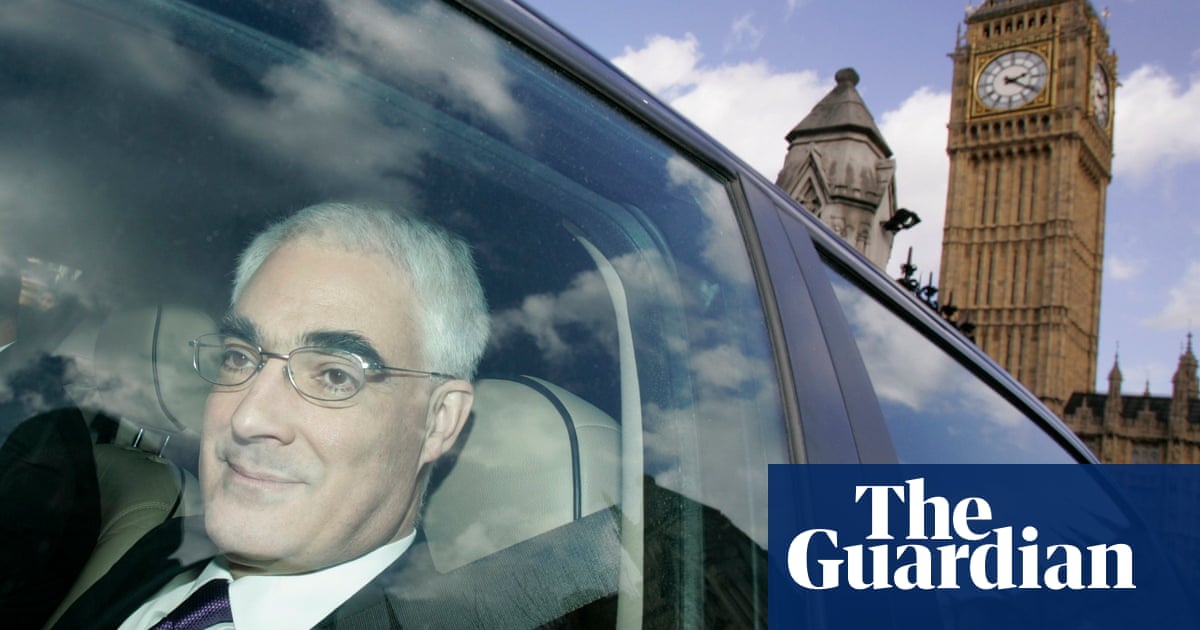
Leaders from across the political spectrum have paid tribute to the former Labour chancellor Alistair Darling, who stewarded the economy through the 2008 crash, after his death at the age of 70.
A statement issued in Edinburgh on behalf of Darling’s family said: “Alistair Darling, the much-loved husband of Margaret and beloved father of Calum and Anna, died after a short spell in Western General hospital under the wonderful care of the cancer team.”
Darling was an Edinburgh MP from 1987 until he stepped down from parliament in 2015, and served as chancellor under Gordon Brown from 2007 to 2010.
Former colleagues and political rivals praised his personal decency and unflappable calm, after the news of his death emerged.
Tony Blair, in whose governments Darling held several senior cabinet roles, said: “Alistair Darling was a rarity in politics. I never met anyone who didn’t like him. He was highly capable, though modest, understated but never to be underestimated, always kind and dignified even under the intense pressure politics can generate. He was the safest of safe hands.”
Brown, who picked Darling to be his successor as chancellor, said he was “a statesman of unimpeachable integrity whose life was defined by a strong sense of social justice”.
The Conservative foreign secretary and former prime minister, David Cameron, said: “Alistair was a thoroughly kind and decent man. Despite us representing opposing parties, I always valued his immense contribution and enjoyed working with him too.”
Scotland’s first minister, Humza Yousaf, called Darling “a giant of Scottish and UK politics”.
He said: “I disagreed with Alistair on big political issues, but what is much more important is the courteous and respectful manner with which he conducted himself throughout his political career.”
Darling was in charge of the Treasury during the turbulence of the global financial crisis when the taxpayer rescued large parts of the banking sector in a series of unprecedented bailouts. He subsequently published a memoir about the period titled Back from the Brink.
Before the full impact of the crisis on the UK’s economy had become clear, in the summer of 2008, Darling gave a frank interview to the Guardian warning that the economic conditions the UK was facing were “arguably the worst they have been in 60 years”.
He was well liked by civil servants, with whom he worked through the night on the details of emergency economic policies.
The governor of the Bank of England, Andrew Bailey, said: “I worked closely with Alistair when he was chancellor during the global financial crisis. He was a dedicated public servant in the very best sense, combining great skill and determination with profound humility.”
Torsten Bell, the director of the Resolution Foundation thinktank, who was an adviser to Darling at the Treasury, called him “a man who always felt the weight of the huge decisions that public service involves, but was still able to take them – even in the darkest of economic times”.
Brian Wilson, a former Labour minister and close friend of Darling’s, said: “He certainly wasn’t a prima donna, in any sense: he was just a calm, able guy, but always with a good moral and political compass. He was absolutely the right man at the right time.”
Before taking on the job of chancellor, Darling had previously served in several cabinet roles, including as work and pensions secretary and transport secretary. After Labour moved into opposition, he continued as a backbench MP.
He played a key role in campaigning against Scottish independence in the 2014 referendum, chairing the successful Better Together campaign. In that post, he repeatedly sparred with the SNP’s leader, Alex Salmond, in televised debates. Widely expected to lose in those encounters, Darling won the first with a caustic put-down of the first minister’s uncertainties about which currency Scotland would use after independence, while denouncing the prospectus for leaving the union as being based on “guesswork, fingers crossed or his blind faith”.
Darling was also furious about attacks on Better Together’s alliance with the Conservatives, which led pro-independence campaigners to label Labour “red Tories”.
The Labour leader, Keir Starmer, said he had been “incredibly fortunate to have benefited from Alistair’s counsel and friendship”.
“He was always at hand to provide advice built on his decades of experience – always with his trademark wry, good humour. Alistair will be missed by all those whose lives he touched. His loss to the Labour party, his friends and his family is immeasurable,” Starmer added.
Darling was born in London in 1953 and attended Loretto school in Musselburgh, Scotland. He subsequently qualified as a lawyer and was a councillor in Lothian before being elected as an MP.
He was proud of his ancestral connections to the Outer Hebrides, where his family had a croft. When he was granted a life peerage in the 2015 dissolution honours, he took the title of Lord Darling of Roulanish – a village on the tiny island of Great Bernera.












